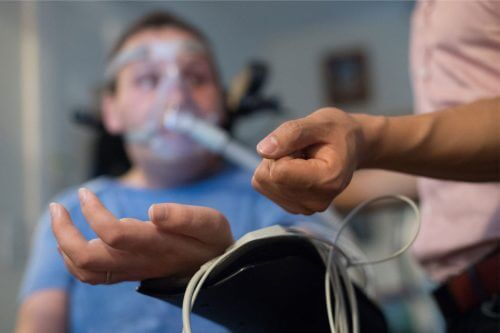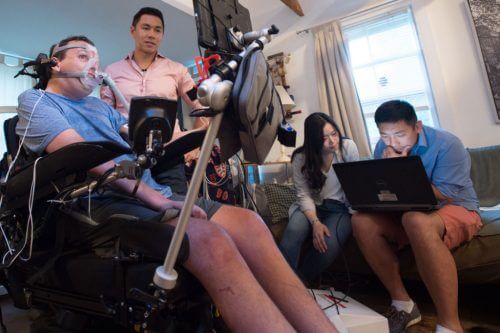Group donders The Dutch and group PIson Technology the American, developed innovative systems - one in rapid signal prediction EEG to allow the sick ALS paralyze activation of rapid communication through brain activity only, and the second will translate electrical signals in the nervous system to operate electrical devices and thus allow the patient ALS Control of computers, telephones and home systems. The award was given as part of an international competition held by the Peres Chaim Association and the Association The ALS Association For technological developments that will help patientsALS. The second product will be used in a clinical trial already in the summer of 2017.

The Dutch Donders group has developed a new computer-based interface that allows locked-in patients to communicate through selective attention. The system is based on an innovative machine learning model that predicts EEG signals and enables a significant improvement in the speed and reliability of communication through the interface: up to one operation per second with 99% accuracy.
The American Pison Technology group has developed a new system that is capable of receiving electrical signals that come from the ends of the nervous system to the muscles using small wireless EMG sensors that are attached to the muscles. The system decodes the signals and translates them into control instructions for various electronic products, including: telephone, computer and more.
Both systems not only provide patients, who have been paralyzed for years, with the ability to control and interact with their environment, but also give researchers and doctors a unique opportunity to study and monitor muscle activity continuously and daily on the progress of the disease.
These developments were carried out as part of the international competition for assistive technology for communication, which is designed to promote and finance innovative and effective developments and means of communication for ALS patients who gradually lose their ability to operate their body and facial muscles and thus, their ability to speak and communicate with their environment. The competition is the result of a collaboration between the Israeli Peres Chaim Association and the American ALS Association.
The competition has two phases: the first phase, which took place at the beginning of the year, was attended by over 70 teams from around the world. 28 different projects from all over the world applied for the second stage. From these, five leading projects were selected and asked to present a prototype at the concluding event, which, as mentioned, was held in Dublin at the annual international conference of the ALS organizations.
Israeli group Led by Dr. Doron Friedman from the Interdisciplinary Center in Herzliya, it won an encouragement award in the first stage of the competition and it benefited from a development grant of $50,000. The total prizes of the first stage was 200 thousand dollars.
As mentioned, as part of the second stage finals held in Dublin, the Dutch Donders Group and the American PIson Technology Group jointly won a development grant of $400 from the Israeli Peres Chaim Association and the American ALS Association, for their development.

Peres Chaim engaged the Teva company to partially sponsor the competition. PIson Technology Group's product is planned to be used in initial clinical studies in the United States at the beginning of summer 2017.
"As long as a cure for the disease has not been found, technology is the cure" says Shai Rhani, CEO of Peres Chaim Association and an ALS patient himself. "The assistive technology challenge is designed to create a significant change in the quality of patients' lives. We see tremendous technological progress in the world around us, such as the use of touch screen technology, "mind reading" technology through human-machine interfaces and more, and we want to harness these innovative tools to meet the needs of ALS patients." The need for the development of an innovative interface for communication emerged from an international workshop held by Peres Haim and The American ALS Association in which doctors, patient representatives and senior managers of assistive technology companies and organizations participated, in which they pointed to the field of communication technology as the most significant issue for improving the lives of patients which currently does not receive a satisfactory response . In light of the success and the many mobilizations, this competition will be held on an annual basis starting in 2017.
Rini also says: "The Peres Chaim association has repented of its flag to make the impossible possible and is working hard to create a breakthrough in the study of ALS and to find a cure for the disease. We are happy to encourage creativity and innovation in the development of systems that will serve and help patients who have contracted the disease. I have every hope that the developments and investment today will help patients imprisoned in their bodies to communicate with their environment until the day when a cure and treatment for the disease is found."
